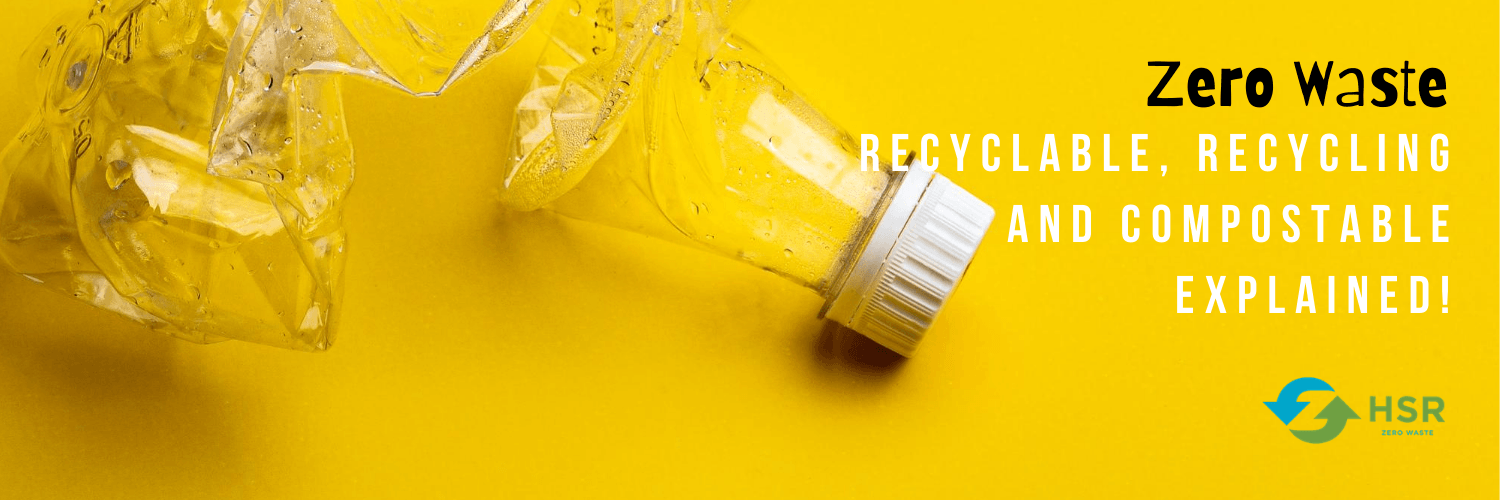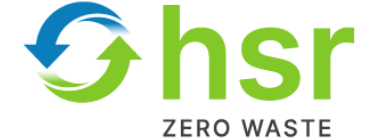
Zero Waste, Recyclable, Recycling, and Compostable Explained!
Jul 31st, 2020When you start exploring the Zero Waste principles you are greeted by several terms that may or may not be confusing at times. So, we thought it might help to explore some of those terms in-depth and see what they are all about.
Zero Waste
Zero Waste can be defined in various ways and often communities and countries around the world have their own definitions and perspectives on how Zero Waste can be applied to their contexts.
Wikipedia tells us that Zero Waste is a “set of principles focused on waste prevention that encourages the redesign of resource life cycles so that all products are reused.”
Perfectly correct. However, according to us, the most complete definition of Zero Waste is given by our partners at the Zero Waste International Alliance.
They explain that Zero Waste is “the conservation of all resources by means of responsible production, consumption, reuse, and recovery of products, packaging, and materials without burning and with no discharges to land, water, or air that threaten the environment or human health.”
Recyclable
The term “recyclable” points to materials and products that can be reprocessed into new materials destined for the manufacturing of new products by using a special industrial process.
Recyclable materials include paper, glass, cardboard, plastic, metal, tires, batteries, and of course tons of electronics, and many more.
Recycling
These recyclable materials are either picked up from curbside bins or delivered to household recovery facilities where they are sorted, cleaned and reprocessed into materials that can be used over and over again in manufacturing. It is this particular process of collecting and processing materials that is now commonly known as “recycling.”
Biodegradable
Biodegradable refers to the disintegration of materials into natural elements by bacteria, micro-organisms, and other living creatures.
Most products are biodegradable, however, sometimes it can take those products hundreds of years to biodegrade. Some experts estimate that the chemical compound polystyrene, better known as styrofoam, takes 500 years to decompose. Others believe that polystyrene foam can not decompose, and will maintain its shape for thousands of years unless physically broken.
It will come as no surprise that styrofoam is now considered to be one of the most environmentally unfriendly types of waste that exist in today’s world.
Glass is yet another product that can sit for thousands of years in the landfill without breaking down. Microorganisms do not recognize glass as part of their food chain, so the chemical structure of the glass is maintained forever. Even if the glass brakes, it just splinters apart in endless smaller pieces, but will not biodegrade.
Composting
The process where compostable materials, typically made from plants and other organic materials, are decomposed by bacteria, fungi, and larger organisms such as worms. The end result is a fertile garden soil that works wonders and provides vital nutrients to growing plants.
Free webinar: Intro to ZeroWaste
As the exclusive provider of Zero Waste Canada Educational Programs, HSR Zero Waste is celebrating by offering the “Intro to Zero Waste” webinar for FREE to all who are ready to join the global movement toward Zero Waste communities.
Individuals, businesses, communities, and waste management professionals who are eager to begin their Zero Waste journey will be introduced to what Zero Waste is, why it is important, and how to make a change by reducing their environmental footprint!
The webinar is completely free and open for registration to those who wish to attend on August 19, at 2 PM PST.
Of course, why stop there? Those who are ready to take their Zero Waste knowledge to the next level can register for the Zero Waste Fundamentals Program.
Zero Waste Fundamentals Program
This self-run course consists of 5 sessions, specifically designed for those who are looking for more in-depth knowledge on Zero Waste and aims to provide a solid foundation of Zero Waste practices, policies, values, and concepts.
After completion, you will be able to actively identify, support, and advocate for Zero Waste, achieving a Zero Waste Canada official certificate of conclusion.
It is time to delve into this new way of living and become the first among your colleagues, community, friends, and family, who started their journey toward Zero Waste.
Registration is now open and we hope that you will join the wonderful global community of Zero Waste enthusiasts!
Don’t forget to share this post with all those who care for their environment and are ready for a new challenge!
